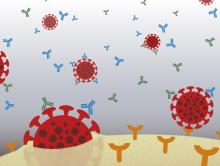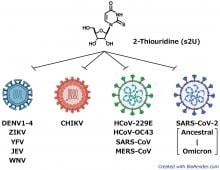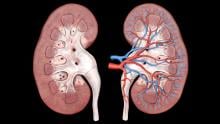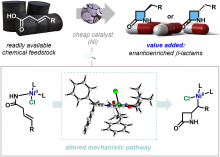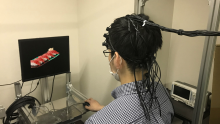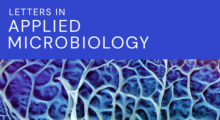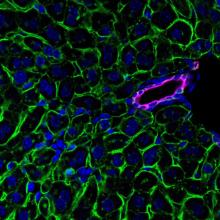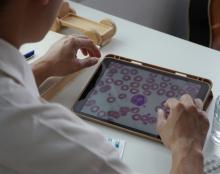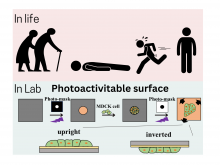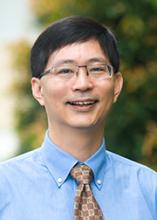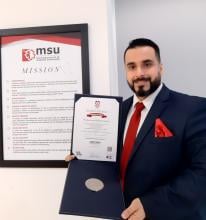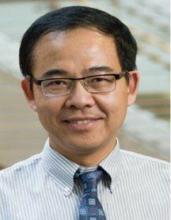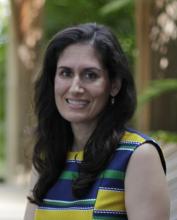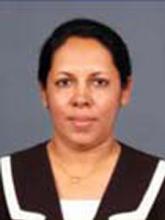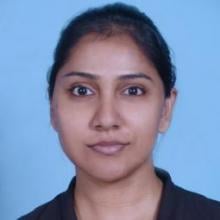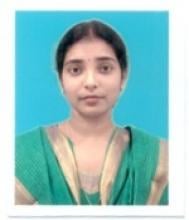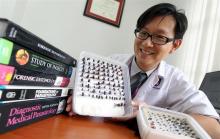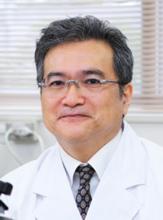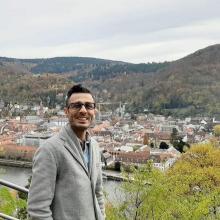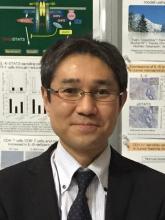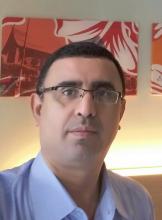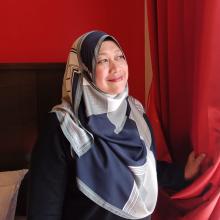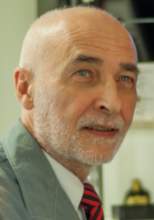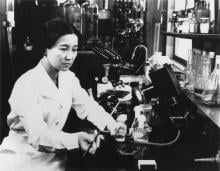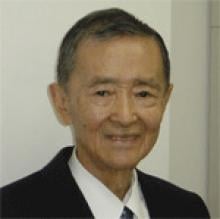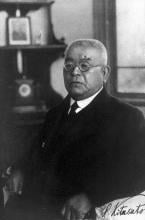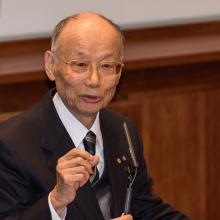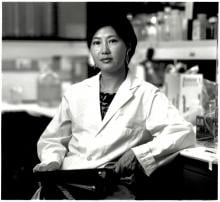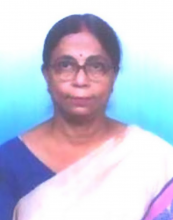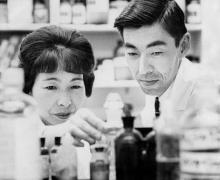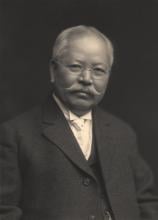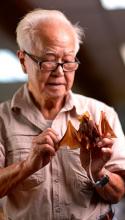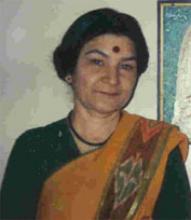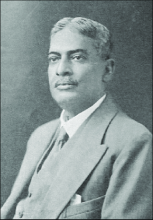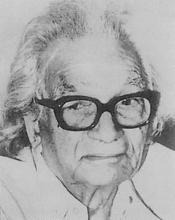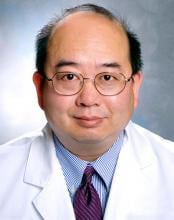Diseases
News
10 Nov 2023
New insights on how individual immune responses to the SARS-CoV-2 virus, particularly in mutant strains, can influence the efficacy of COVID-19 vaccines
09 Nov 2023
New shrimp species in ancient hot spring, Super sprouts, How "warm-ups" work, New antiviral candidate, Solving voltage decay and from our blog: A sustainable future shines in TIE 2023. Read all in the latest Editor's Choice.
02 Nov 2023
First such local study finds extension of smoking ban to communal areas of residential blocks and outdoor spaces linked to monthly fall in heart attack cases
20 Oct 2023
Asia Research News monitors the latest research news in Asia. Some highlights that caught our attention this week are helping to speed up chronic wound healing by gently moving skin cells, distinct species of Japanese honeybees, and how the world’s smallest flowing plant can help astronauts.
20 Oct 2023
A broad-spectrum antiviral drug candidate, 2-thiouridine, that targets positive-strand RNA viruses has been identified and characterized.
20 Oct 2023
New perspective argues pursuing fair AI for healthcare requires cross-disciplinary collaboration to translate methods into real-world benefits.
16 Oct 2023
The shortlist for the Applied Microbiology International Awards 2023 has now been announced.
The AMI Awards programme is designed to celebrate the brightest minds in our field and promote the research, group, projects, products and individuals who continue to help shape the future of applied microbiology.
16 Oct 2023
New research reveals how disrupted energy production in the kidneys contributes to progressive kidney disease in diabetes.
15 Sep 2023
- Team led by DGIST Professor Seo Sang-won, in collaboration with IBS Molecular Activation Catalysis Research Team, significantly simplifies complex antibiotic synthesis processes
- Synthesizing pharmaceutical raw materials with a 700 times higher market value from hydrocarbons using economical catalysts
- Article published in Nature Catalysis, the top international journal in chemistry
11 Sep 2023
Researchers have unveiled an intriguing phenomenon of cellular reprogramming in mature adult organs, shedding light on a novel mechanism of adaptive growth. The study, which was conducted on fruit flies (Drosophila), provides further insights into dedifferentiation - where specialized cells that have specific functions transform into less specialized, undifferentiated cells like stem cells.
11 Sep 2023
Patients with a specific form of chronic indigestion react differently to images of food, compared to healthy control subjects or patients with irritable bowel syndrome.
04 Sep 2023
In recent years, an emerging zoonotic pathogen called E. albertii, transmitted by wild animals such as raccoons, has garnered attention due to its remarkable similarities to several strains of Escherichia coli (E. coli), including O157, and its potential to cause severe illness, particularly in children. A research group at Osaka Metropolitan University has developed a novel culture medium that allows for the selective cultivation of E. albertii from raccoon fecal samples. This enabled the successful isolation of E. albertii even from samples with very low quantities of this bacterium. Their findings are expected to further elucidate the bacteriological characteristics of E. albertii and to contribute to the control of foodborne illnesses.
31 Aug 2023
Applied Microbiology International (AMI) is boosting training and development opportunities for early career scientists in journal publishing with the appointment of 14 new junior editors on its flagship journal Letters in Applied Microbiology (LAM). They were selected from more than 100 applicants by the Editor-in-Chief, Dr Marcela Hernández.
11 Aug 2023
Asia Research News monitors the latest research news in Asia. Some highlights that caught our attention this week are particle pollution linked to antibiotic resistance and microplastics being found in the body, fossils that show a marine reptile that used filter feeding, and how a connection in our brains compares our rewards to ones that others received.
28 Jul 2023
Scientists have isolated potent neutralising antibodies from a COVID-19 vaccinated SARS survivor that exhibited remarkable breadth against known sarbecoviruses. The antibodies targeted a conserved region of the spike protein and blocked receptor binding and viral fusion. These findings could guide the development of broadly active therapeutics against current and future coronaviruses.
26 Jul 2023
The consortium’s multidisciplinary executive committee comprises of both local and international oral health researchers.
19 Jul 2023
Omega-3 lysolipids are important for protecting the liver from dietary fat, according to Duke-NUS researchers and collaborators from SGH.
18 Jul 2023
Research stories from the International Congress of Genetics in Melbourne Tuesday 18 July 2023
07 Jul 2023
Asia Research News monitors the latest research news in Asia. Some highlights that caught our attention this week are a way to avoid biopsies by catching free-floating DNA, a large dip in the Earth’s surface under the Indian Ocean, and how people who brush their teeth before bed seem to have healthier hearts.
16 Jun 2023
Asia Research News monitors the latest research news in Asia. Some highlights that caught our attention this week are a potential answer to the question of which came first the chicken or the egg, vaginal seeding to boost baby microbiomes, and looking at remnants of the universe that used to be filled with gas.
09 Jun 2023
Asia Research News monitors the latest research news in Asia. Some highlights that caught our attention this week are ice-free Arctic summers, how monkey malaria gets transmitted, and over 300 new species discovered in the lower Mekong.
01 Jun 2023
Tests could soon identify patients who will respond well to the available treatment for chronic myeloid leukaemia and those who will be resistant to it—which could improve their chances of survival.
19 May 2023
Mushrooms 🍄get chattier after rainfall 🌧️, Two-organ chip answers fatty liver questions, History maps 🗺️vs future simulations, Restoring vision in blindness. Plus in our blog: Myanmar: Through eyes of leadership. Read all in the latest Editor's Choice.
12 May 2023
Specially coated surfaces help scientists investigate what happens when cell clusters are turned upside down.
11 May 2023
A protein that helps bats survive viral diseases might offer lessons for developing new anti-inflammatory treatments.
10 May 2023
A new drug delivery system delivers an antioxidant directly to mitochondria in the liver, mitigating the effects of oxidative stress.
25 Apr 2023
A research group at the Osaka Metropolitan University analyzed the relationship between diet, muscle mass, and liver fibrosis progression in 136 patients with nonalcoholic fatty liver disease attending the Osaka Metropolitan University Hospital. The research group found that the group with the highest Japanese diet score had less advanced liver fibrosis, and that the intake of soy products, seafood, and seaweed was important.
14 Apr 2023
Research reveals a promising stem cell approach to correct photoreceptor cell degeneration, which underlies several forms of visual decline and blindness.
10 Apr 2023
Doctors at King Chulalongkorn Memorial Hospital have developed lightweight and easy-to-use Parkinson's gloves that can automatically reduce tremors, allowing patients to enjoy social life and reducing side effects from medication and risk from brain surgery.
Events
Sorry, no events coming up for this topic.
Researchers
Duke-NUS Medical School
Prof. Patrick Tan's research focuses on developing genomic approaches to unlock the molecular and clinical diversity of gastric cancer (aka stomach cancer)- a leading cause of global cancer mortality.
Daegu Gyeongbuk Institute of Science and Technology (DGIST)
Prof. Jinsoo Seo's research focuses on mechanisms of cellular dysfunction and cognitive decline in aging brain, genetic risk factors for neurodegeneration as well as the effect of environmental factors and lifestyle on Alzheimer's disease.
Dr. Indika Neluwa-Liyanage is a lecturer in Biochemistry at the Faculty of Medical Sciences of University of Sri Jayewardenepura. His research focuses on the metabolic alterations underlying autism spectrum disorders and inherited metabolic disorders.
Dr. Mohammed N. Abdulrazaq is currently an Assoc. Prof. at Department of Engineering & Technology, Management & Science University (MSU), Malaysia.
Universiti Malaysia Sabah
Dr. Connie Cassy Ompok is an early childhood education expert and a Senior Lecturer at the Faculty of Psychology and Education, Universiti Malaysia Sabah. She Started her career in Early Childhood Education as a preschool teacher (2004-2007), a lecturer in early childhood education at the Malaysian Institute of Teacher Education (2008-2016) before serving as a Senior Lecturer in Early Childhood Education at UMS (2016 until now).
Currently a research assistant in the laboratory of green energy in Zhejiang University of Technology.
Universiti Malaysia Sarawak
Dr Paul Cliff Simon Divis is the director of Malaria Research Centre at Universiti Malaysia Sarawak (UNIMAS).
I do research on dysmennorrhoea and gender-based violence. I am a pioneer in registered clinical trials on indigenous and Ayurveda medicines in Sri Lanka. I have approval for a herbal preparation, for COVID patients.
I am an Assistant Professor in Health Services Policy and Management at the University of South Carolina Arnold School of Public Health, US. As a health services researcher and a rural health advocate, I am driven to advance rural health equity via productive, insightful research collaborations. My work applies global and hyper-local perspectives (rural-urban, county-level, state-level variations) building statistical models to examine rural healthcare delivery on outcomes, access, and welfare of women.
Duke-NUS Medical School
Professor Linfa Wang is a Professor with the Emerging Infectious Diseases Programme at Duke-NUS Medical School, Singapore.
Associate Professor Sophia Archuleta is the Head and Senior Consultant of the Division of Infectious Diseases at the National University Hospital, Singapore.
Mangala Gunatilake is a veterinarian and professor at the Department of Physiology, Faculty of Medicine, University of Colombo, Sri Lanka.
Nimanthi Jayathilaka is a professor at the Department of Chemistry, University of Kelaniya, Sri Lanka.
Dr NK Prasanna is currently working as Sr. Scientist & Editor, Indian Journal of Biochemistry & Biophysics, Research Journals Division at CSIR-National Institute of Science Communication and Policy Research, New Delhi. Before joining CSIR (NIScPR), she was at IIT Guwahati. Dr Prasanna completed her Ph.D from Institute of Medical Sciences, Banaras Hindu University, Varanasi.
In CSIR-NIScPR, She served one important flagship journals viz. Indian journal of Biochemistry and Biophysics (IJBB; ISSN: 0301-1208) It is pertinent to mention that the journal ranks first among all the NIScPR journals as per the available Journal Metrics by international agencies such as Thomson Reuters and Scopus. Details of remarkable academic achievements of IJBB which she spearheading, both nationally and globally. The Indian journal of Biochemistry and Biophysics (IJBB) is a premier SCI-indexed bimonthly peer-reviewed research journal that publishes original research articles in the subject area of biochemistry and biophysics
Hira Khalid is an associate professor at the Department of Chemistry of Forman Christian College University, Lahore, Pakistan.
Universiti Teknologi MARA (UiTM)
Dr Heo is currently a senior lecturer at the Department of Microbiology and Parasitology, Faculty of Medicine, Universiti Teknologi MARA, Malaysia.
Duke-NUS Medical School
Dr. Tazeen Jafar is a global health leader and expert with a focus on implementation research in hypertension, cardiovascular disease, and chronic kidney disease.
Hokkaido University
Postdoctoral fellow, Faculty of Veterinary Medicine, Hokkaido University, Japan
Duke-NUS Medical School
Dr Danielle Anderson is the Scientific Director of the Duke-NUS Medical School ABSL3 laboratory.
Tohoku University
A professor at the Bone Regenerative Engineering Laboratory, Regenerative and Biomedical Engineering Division, Graduate School of Biomedical Engineering, Tohoku University, Japan
Institute for Integrated Cell-Material Sciences (iCeMS) at Kyoto University
My research background covers multidisciplinary fields such as Pharmaceutics, Cancer Nanomedicine, Bioengineering and Organ-on-a-chip platforms. My current research focuses on the development of dynamic biological barriers on a chip such as blinking human cornea on a chip.
Hokkaido University
Hidemitsu Kitamura is an associate professor at the Section of Disease Control, the Institute for Genetic Medicine, Hokkaido University, Japan.
Professor Ahmed Al-Haddad, M.Sc., Ph.D. (Germany) is currently Professor of Microbiology and Medical Microbiology at College of Medicine and Health Sciences, Hadhramout University-Yemen.
He is the Founding-Dean of the first Faculty of Nursing in Yemen. He has over fifteen years of research and teaching experience in various domains of life sciences.
Al-Haddad has published many peer reviewed articles and conference papers in the areas of molecular biology, microbiology and antibiotics in National and International journals.
He is reviewer in different national and international Scientific Journals such as Annals of Clinical Microbiology and Antimicrobials, Journal of Microbiology and Antimicrobials, Sultan Qaboos University Medical Journal, British Biotechnology Journal.
He is a member of various national and international scientific organizations.
Tohoku University
Viteroretinal surgeon working on developing treatments for retinal dystrophies and many other retinal diseases.
Hong Kong Baptist University (HKBU)
Dr. Simon Quan-Bin Han is an Assistant Professor at the School of Chinese Medicine, Hong Kong Baptist University.
Kanazawa University
Dept of Medical Neuroscience, School of Medicine, Kanazawa University
Universiti Teknologi MARA (UiTM)
Kartini Ilias is a senior lecturer and clinical psychologist in Faculty of Health Sciences, Universiti Teknologi MARA, Puncak Alam, Selangor.
Korea Advanced Institute of Science and Technology (KAIST)
Professor in Electrical Engineering at Korea Advanced Institute of Science and Technology (KAIST).
Prof. Dr. Francisco J. Barrantes is the Head of the Laboratory of Molecular Neurobiology, BIOMED UCA-CONICET, Buenos
Aires, Argentina.
The Chinese University of Hong Kong (CUHK)
Professor, School of Life Sciences, The Chinese University of Hong Kong
Giants in history
Ruby Sakae Hirose (1904 – 1960) was a Japanese-American scientist whose research contributed significantly to our understanding of blood clotting, allergies and cancer.
Iranian physician and bacteriologist Azar Andami (8 December 1926 – 19 August 1984) developed a cholera vaccine to combat an outbreak that swept through the Middle East, India, Southeast Asia, and Africa in 1937.
Michiaki Takahashi (17 February 1928 – 16 December 2013) was a Japanese virologist who developed the first chickenpox vaccine.
Irene Ayako Uchida’s (8 April 1917 – 30 July 2013) strides to understand genetic diseases such as Down syndrome paved the way for early screening of chromosomal abnormalities in foetuses.
Baron Kitasato Shibasaburo (29 January 1856 – 13 June 1931) was a Japanese physician and bacteriologist whose work led to a new understanding of preventing and treating tetanus, diphtheria and anthrax.
By isolating soil microorganisms and studying the compounds they produce, Satoshi Omura (born 1935) discovered almost 500 organic compounds with unique properties that were produced by these microorganisms, including many new antibiotics.
Chinese-American virologist and molecular biologist Flossie Wong-Staal (27 August 1946 – 8 July 2020) was the first scientist to clone HIV and determine the function of its genes.
Maharani Chakravorty (1937 – 2015) was one of India’s earliest molecular biologists whose research paved the way for advances in the treatment of bacterial and viral infections.
Husband and wife team, Kimishige (3 December 1925 – 6 July 2018) and Teruko Ishizaka (28 September 1926 – 4 June 2019) discovered the antibody class Immunoglobulin E (IgE) that triggers allergic reactions. They also discovered that IgE antibodies attach to white blood cells, known as mast cells, releasing histamine, which causes allergic reactions.
Japanese chemist Takamine Jokichi (3 November 1854 – 22 July 1922) founded the Tokyo Artificial Fertilizer Company, where he isolated a starch-digesting enzyme (named takadiastase) from the fungus Aspergillus oryzae.
Lim Boo Liat (21 August 1926 – 11 July 2020), a leading authority in the conservation of Malaysia’s biological diversity, had his initial interest in the outdoors piqued by nature lessons in school. Lim, who helped found the National Zoo of Malaysia and re-establish the Malaysian Nature Society, had a particular interest in researching zoonotic diseases associated with small animals.
A pioneer of bio-organic chemistry, Darshan Ranganathan (4 June 1941 – 4 June 2001) is remembered for developing a protocol for synthesising imidazole, a compound used to make antifungal drugs and antibiotics. Widely considered India’s most prolific researcher in chemistry, she also published dozens of papers in renowned journals on protein folding, molecular design, chemical simulation of key biological processes, and the synthesis of functional hybrid peptides and nanotubes.
Indian scientist and physician Upendranath Brahmachari (19 December 1873–6 February 1946) is best known for creating a drug called Urea Stibamine, used to safely and reliably treat visceral leishmaniasis (or Kala-azar), a severe infection caused by the Leishmania parasite.
Filipino chemist and pharmacist Manuel A. Zamora (29 March 1870 – 9 July 1929) is best remembered for his discovery of the tiki-tiki formula to combat beriberi, a disease caused by Vitamin B1 deficiency.
Indian organic chemist Asima Chatterjee (1917 to 2006) studied the medicinal properties of plant products, especially compounds known as vinca alkaloids.
Umetaro Suzuki (7 April 1874 – 20 September 1943) was a Japanese scientist best remembered for his research on beriberi, a disease caused by vitamin B1 deficiency, characterized by limb stiffness, paralysis and pain.
Salimuzzaman Siddiqui (19 October 1897 – 14 April 1994) was an artist and chemist from Pakistan whose research focused on natural products from plants.
Barry Paw (29 August 1962 – 28 December 2017) was a biologist and oncologist who discovered several novel genes and their functions in red blood cells.



